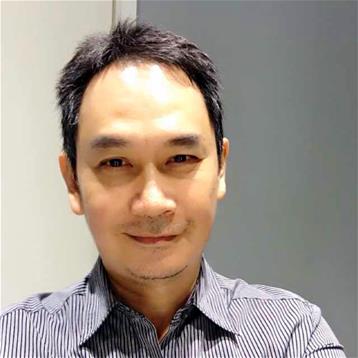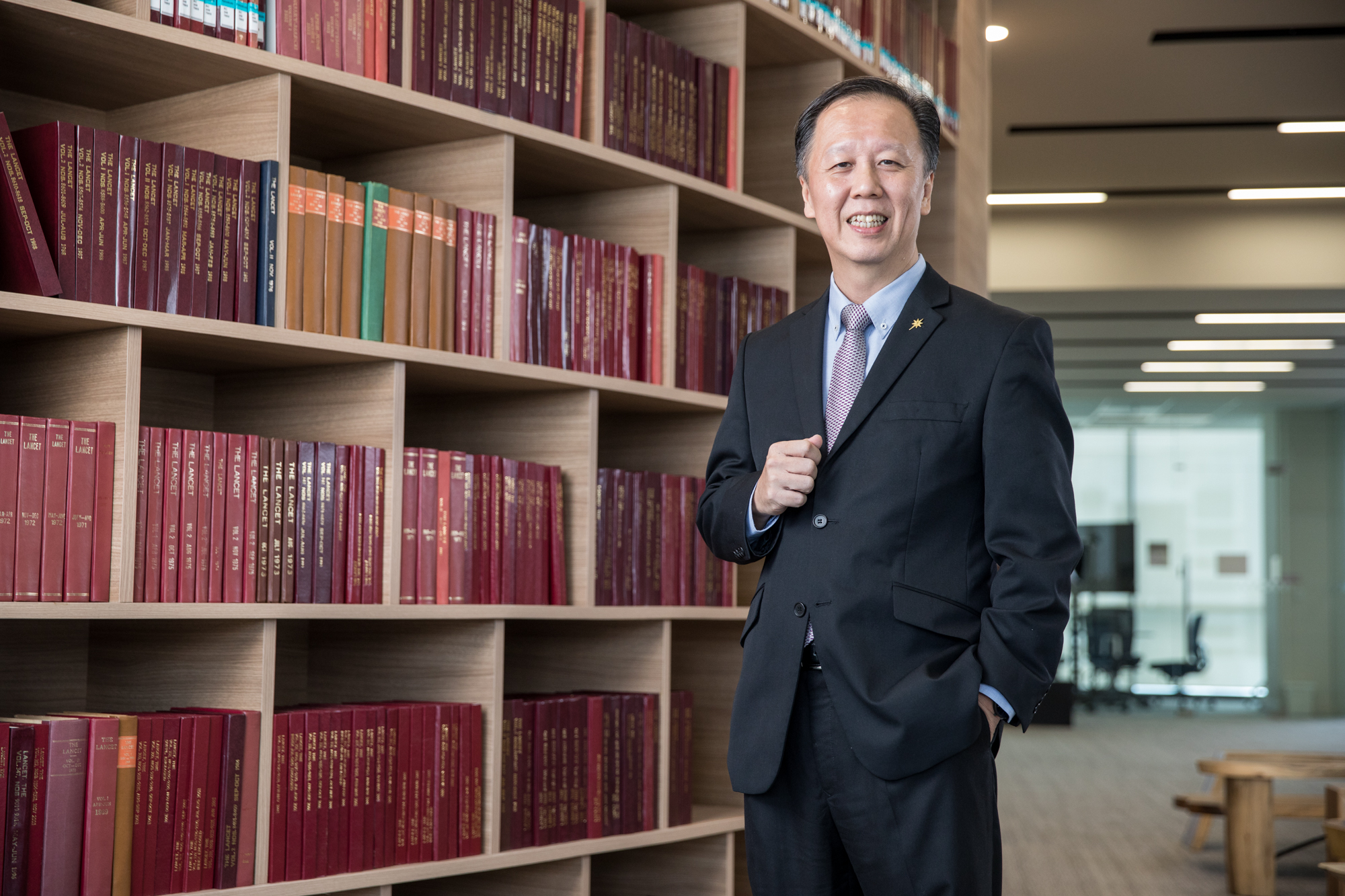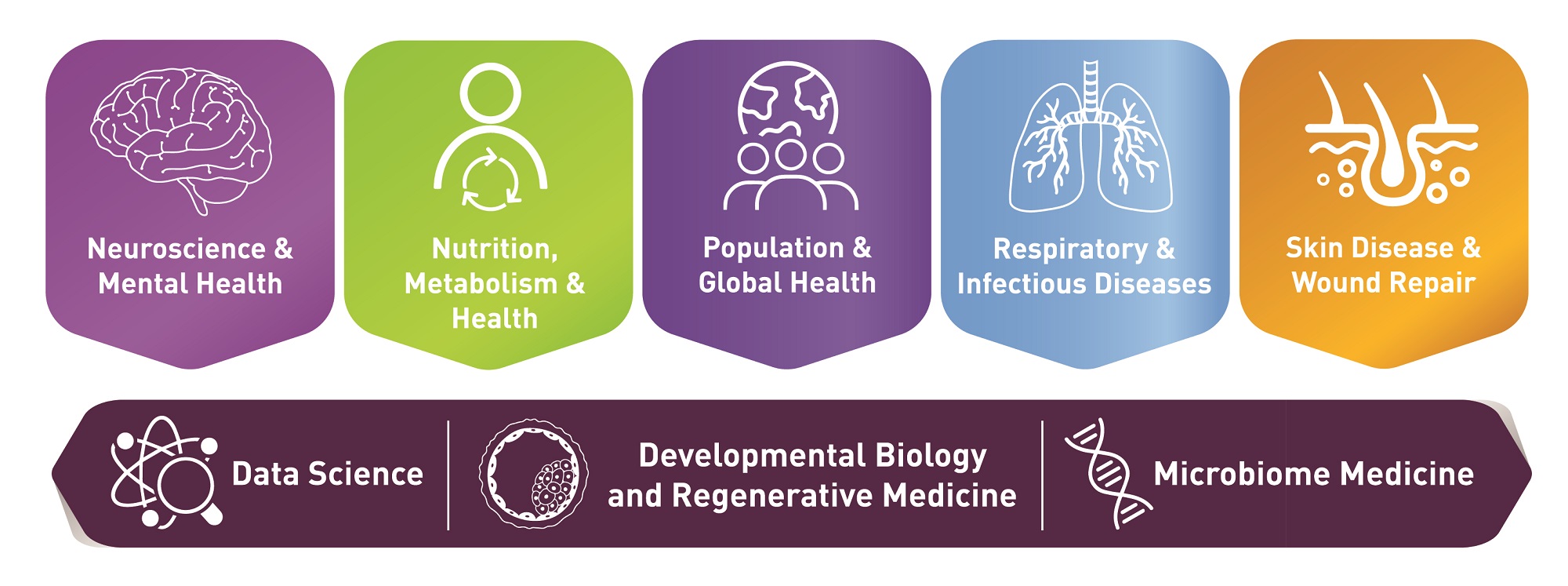Research: The next gear for LKCMedicine Research
 | By Andy Kwan, Editor, Communications & Outreach |
From its inception, LKCMedicine has set forth its objective to be a leader in transformative research, besides becoming a model for innovative medical education.
Ten years on, the School’s research arm has achieved significant milestones that include receiving large nationally competitive research grants and publishing more than 2,000 papers internationally. Three of our researchers, namely Professors John Chambers, Bernhard Boehm and George Chandy, are recognised by Clarivate, a global leader in providing trusted insights and analytics to accelerate the pace of innovation, as Highly Cited Researchers.
To date, LKCMedicine has trained more than 18 clinicians from the National Healthcare Group who were enrolled into the School’s PhD programme and will earnestly support Singapore’s effort to train and nurture clinician scientists as key drivers of translational research.
When COVID-19 threatens the country’s population and its healthcare system, LKCMedicine’s researchers sprung into action by actively engaging in related research programmes. The School has published many COVID-19 related papers and initiated projects to investigate the effects of the pandemic. These projects cover a diverse group of topics, including alternative ways of testing for COVID-19, how the pandemic has affected the ability of medical practitioners to provide care for their patients, and how different risk factors affect patients.
In response to the national effort to increase COVID-19 testing capacity, Associate Professors Eric Yap and Kevin Pethe set up a new diagnostic laboratory with a team of newly recruited staff. The lab uses a novel rapid nuclei acid amplification test, developed by A/Prof Yap, without RNA extraction technique for SARS-CoV2. This method will shorten the time taken to test COVID-19 swab samples to just 36 minutes, a quarter of the time required using conventional tests.
The next lap for LKCMedicine Research
 Professor Lim Kah Leong helms LKCMedicine Research since October 2019.
Professor Lim Kah Leong helms LKCMedicine Research since October 2019.
Professor Lim Kah Leong, who assumed the role of Vice Dean, Research, in October 2019, is raising the game for his team with the LKCMedicine Research Programmes 2.0. He aims to strengthen the framework that he established back in November 2019, where he mapped out five flagship research programmes - Neuroscience and Mental Health, Population and Global Health, Respiratory and Infectious Diseases, Skin Diseases and Wound Repair and Vascular / Metabolic Diseases - that are supported by cross-cutting themes including Data Science, Developmental Biology and Regenerative Medicine, and Microbiome Medicine.
LKCMedicine Research will continue its focus on finding solutions to healthcare challenges associated with the rapidly ageing population, with a particular emphasis on developing strategies that will enable our seniors to live healthier and longer. In addition, it endeavours to leverage the expertise of Professor Joseph Sung, the new Dean of LKCMedicine and a prominent gastroenterologist, by expanding on the Vascular / Metabolic Diseases theme to Nutrition, Metabolism and Health.
Recognising the importance of data mining, Prof Sung and Prof Lim have introduced a new cross-cutting theme called the Data Science Core. “The importance of research data needs no further emphasis. This new core will serve as a valuable resource in providing data analytics support through a soon-to-be-established Centre for Biomedical Informatics,” said Prof Lim, who is also the President's Chair in Translational Neuroscience and Research Director for Biomedical and Life Sciences, NTU.
Prof Lim has also formalised the designation for the programme representatives of the five themes. From 1 July, they are appointed as Programme Directors to better recognise their leadership and efforts in running their respective programmes, and to empower them to move our research forward. Programme Co-directors from the School’s clinical partners from the National Healthcare Group such as Tan Tock Seng Hospital, Institute of Mental Health, National Skin Centre and the National Centre of Infectious Diseases, were simultaneously appointed. “Together, the directors and co-directors will converge their research towards finding solutions to clinical issues that LKCMedicine is engaged in,” Prof Lim explains.
There are some key research programmes that are already underway. One of them is Dementia Research led by Professor George Augustine whose team will seek to understand the brain circuitry defects that underlie common forms of dementia. Another project that has taken off is the Population and Global Health Research undertaken by Professor John Chambers. His team aims to understand the behavioural, social, environmental and molecular factors that influence health and disease in Asian populations, and to then translate these insights into effective population and community-based approaches that promote well-being.
A third one is on next generation human organoids, a project led by Professor Philip Ingham, founding Vice Dean for Research, that seeks to understand human diseases using state-of-the-art patient-derived organs in a dish technology. This is complemented by a project led by Prof Lim whose team is using his patented umbilical cord-lining derived stem cells for regenerative medicine.
Additionally, Dean Prof Sung, who is concurrently NTU Senior Vice President (Health and Life Sciences), will also lead a research programme that will explore technology for the elderly, an exciting area that has tremendous potential to offer new solutions to improve the quality of life for our geriatric population. This will enable our scientific researchers to harness on emerging technologies such as artificial intelligence and smart robots to attain their objectives, as they could possibly improve the health and wellness of the elderly with a high level of functional independency.
“What LKCMedicine aspires to achieve through research is to cover from end to end the entire basic-translational clinical spectrum and goes beyond the continuum to impact our community health through our outreach to family physicians,” said Prof Lim.

